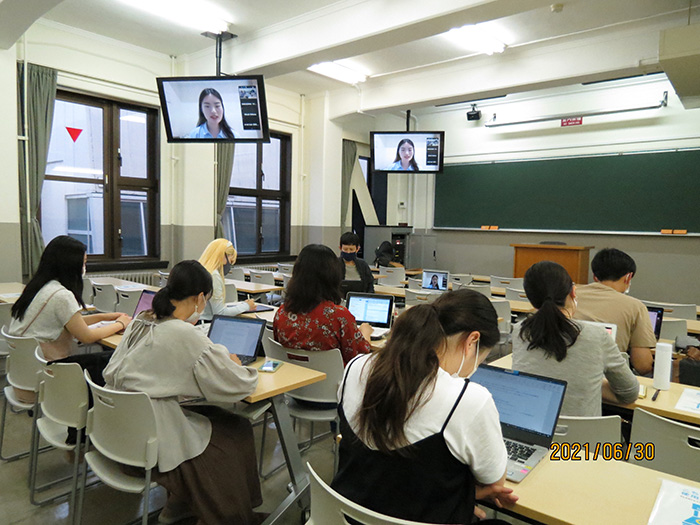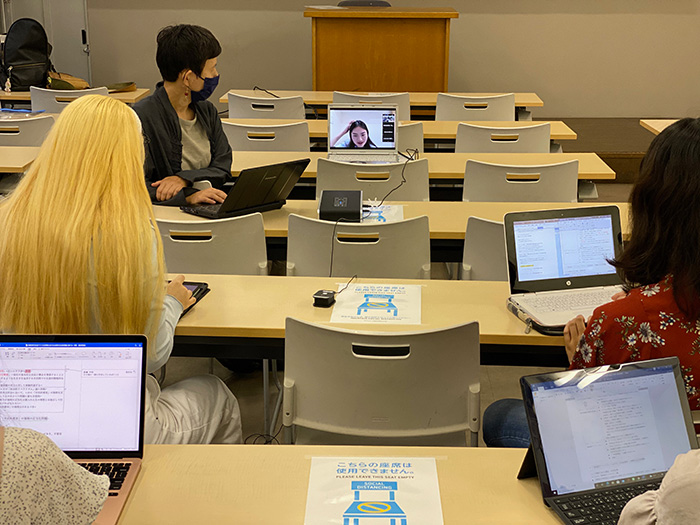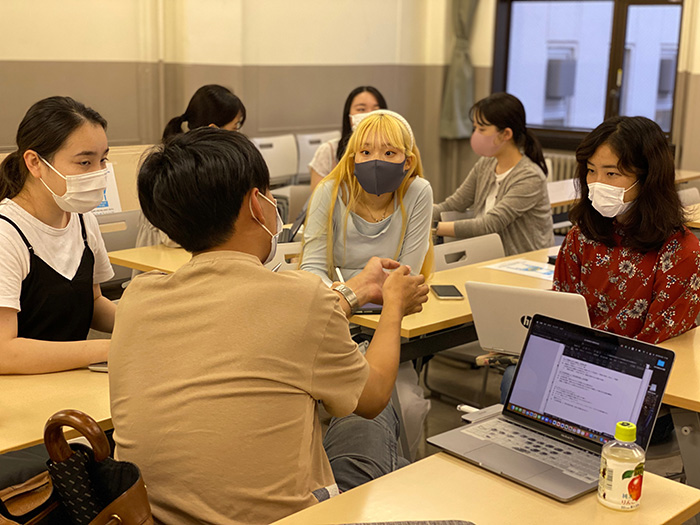Class Introduction:Seminar (Global Civil Society and International Cooperation) 1・2

Comment from Professor:
In the seminar, we will use sociology as a methodology and globalization as a keyword to unravel various social issues.
To start, what is the field of study that sociology covers?
Compared with other academic areas such as political science and economics, students often ask this question to understand our focus of study. If political science deals with government and politicians, economics with companies and consumers, or education with schools and students, then sociology could be thought of as studying the everyday world and individuals. I can almost hear voices saying, "Even knowing that, I still can't picture it."
I also didn't quite grasp what sociology entailed during my university days. Once, during my student days, I complained to my friend about my father. I listed various grievances, including his lack of sincere attention towards my mother's issues and the unbelievable incident where all my relatives on his side were suspended from public rights due to electoral fraud when my parents got married. My friend responded, “All your complaints are about typically rural characteristics. Saying you dislike rural life is essentially discriminating against the countryside. Don't be so prejudiced!” Additionally, they explained, situating my grievance within a social context, “It's common for daughters educated in urban universities to have differing values and clashes with a provincial, unsophisticated father.” It was in that moment, when personal issues became dissected as part of social structure influences, everything clicked. This is, of course irrespective of the validity of that interpretation, the epiphany that I had: if I view it as characteristics of the rural area, my personal grievances seemed to dissolve.
This was a personal experience which convinced me that sociologically speaking, while our actions are based on our decisions and will, they are also in part defined by structures beyond an individual’s control.
Such uncontrollable structures could include gender-based orders, racial or ethnic discrimination, class-determined resource access differences, being rooted in one’s parents’ occupation or income, and more. Sociology seeks to elucidate the relationships between individuals and the structure.
Even university attendance is not solely influenced by personal effort but also impacted by gender, place of birth, and parental profession. For instance, according to the Basic School Survey, the national college enrollment rate for high school graduates is 54.5%. Breaking it down by gender, it is 57.8% for men but 51.0% for women, with nearly 7 percentage points of divergence. Considering it further by prefecture, the university enrollment rate for women is 74.1% in Tokyo but only 34.2% in Kagoshima Prefecture. It must be acknowledged that structural factors, beyond individual abilities or efforts, play a clear role.
Such structural disparities can be attributed to patriarchal systems that dictate gender order, social hierarchies determined by parents’ occupations, racism, and nationalism underlying discrimination against foreigners. One of the fascinations of sociology is its ability to reveal the structures and power relations that profoundly impact an
individual’s everyday life.
In the seminar, we decipher society from various perspectives such as immigration, nationalism, gender, and children’s place in society. Through learning in the seminar, we aim to be able to position personal issues in a global context and interpret them.
(Nanako Inaba)

Class Interview
The reason I decided to take this seminar is that I have always been interested in the formation of identity in children connected to foreign countries. By reading the research themes of past seniors in the field of civil society and attending the professor's classes, I felt that I might be able to do what I want to do here.
The appeal of this seminar is that everyone participates in discussions on an equal basis. It is not uncommon for discussions to be sparked by minor questions that arise during the conversation, not just the topics presented by the speakers. Another appealing aspect is that the professor selects literature according to everyone's interests, and we can further choose from it ourselves.
(Misaki Shibata, Fourth-year, Faculty of Global Studies)
In this seminar, we not only learn basic civil society theory and sociology but also use them as a base to theoretically analyze recent issues through examples and discussions. The seminar is now focused on discussions due to the current social climate, but by the time you all enroll, if the conditions have settled, practical research may also be conducted.
The reason I decided to take this class was my interest in European civil society. Thus, I felt like I could deepen my knowledge and learn with peers who have the same interests in Professor Inaba's seminar, who has profound knowledge of European civil society, especially focused on France.
The appeal of this seminar lies in the diversity of the fields it covers and the ample opportunity to talk. Since new themes are often set each class, you not only acquire a lot of knowledge but also have the environment to think about your opinions each time, which is extremely appealing. This aspect that allows you to develop your knowledge and communication skills is very attractive.
I aim to utilize what I learned in this seminar to look at the world’s conditions with a broad perspective and in communication with others. In discussions, you gain an understanding of topics, the ability to have your opinions, as well as convey them clearly. I want to connect the way of thinking gained in this class to everyday life, not just acquire knowledge.
(Yuto Suga, Fourth-year, Faculty of Global Studies)

